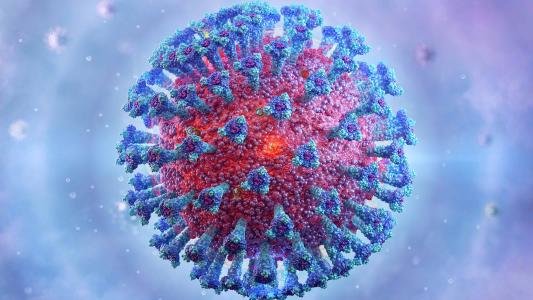Face masks and social distancing can help block coronavirus-carrying respiratory droplets. But if the virus is airborne — meaning it can travel in smaller aerosol particles, as many scientists believe it can — stemming its spread indoors will require better air filtration systems.
Now, researchers in Texas have created an air filter for COVID-19 that kills 99.8% of coronavirus particles that pass through it — a development that could help make indoor living and working less risky as society emerges from lockdowns.
The Coronavirus-Killing Air Filter
Thanks to existing research, the team behind the new air filter for COVID-19 knew when starting their project that the coronavirus dies if exposed to temperatures above 158 degrees Fahrenheit.
Armed with that knowledge, they set out to create an air filter capable of catching and then heating coronavirus to a temperature far higher: 392 degrees Fahrenheit.
Its ability to help control the spread of the virus could be very useful for society.
Zhifeng Ren
Repurposing a standard air filter to kill the coronavirus in this way wasn’t an option — their pores are too large to catch the virus, and they’re too difficult to heat to the needed temperature.
Instead, the researchers decided to fashion their air filter for COVID-19 out of commercial nickel foam, which has pores that are ideally spaced and sized for filtering out aerosols containing the coronavirus.
The foam is also electrically conductive, meaning it could be self-heating; that allowed the researchers to avoid using an external heat source, which would’ve likely caused a large temperature increase in the surrounding air. (Not ideal in the summer, of course, particularly in Texas.)
According to the group’s paper, published in the journal Materials Today Physics, just one pass through a prototype of their air filter for COVID-19 was enough to kill 99.8% of coronavirus particles in aerosols during testing at the Galveston National Laboratory.
Multi-Prong Effort to Kill the Coronavirus
It must be noted that there’s a big difference between killing nearly 100% of coronavirus particles and killing all of the particles.
Like so many things about the novel coronavirus, its infectious dose — the number of virus-carrying particles that would need to enter your body before you’d actually develop an infection — is still a mystery.
Inhaling a single viral particle wouldn’t be enough to make you sick — your immune system would quickly kill it — but what if you inhaled 50? Or 500?
We simply don’t know, which means installing an air filter for COVID-19 that lets through 0.2% of coronavirus-carrying aerosols won’t be enough to eliminate the possibility of people in the building catching COVID-19.
If 0.2% of viruses get through per hour, how much virus will be in the air after an 8-hour shift? Enough to cause new infections? The answer would depend on how many people inside are exhaling virus particles, and for how long, and how quickly the particles degrade on their own. We simply don’t have enough information to answer those questions yet.
Still, it could lower the risk, especially if combined with face masks, social distancing, and other mitigation strategies.
“This filter could be useful in airports and in airplanes, in office buildings, schools, and cruise ships to stop the spread of COVID-19,” University of Houston researcher Zhifeng Ren, a co-developer of the filter, said in a press release.
“Its ability to help control the spread of the virus could be very useful for society,” he added.
We’d love to hear from you! If you have a comment about this article or if you have a tip for a future Freethink story, please email us at tips@freethink.com.
